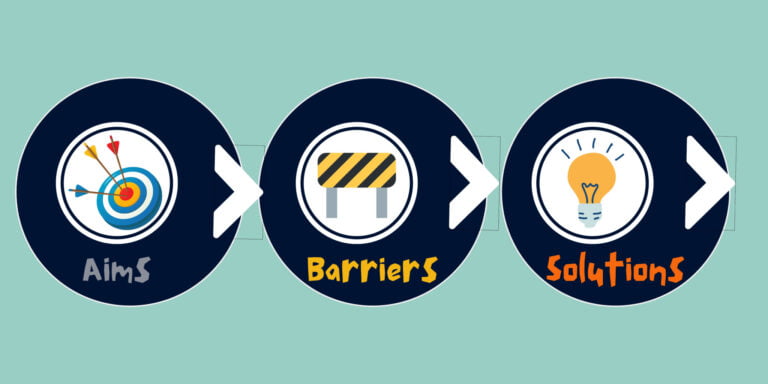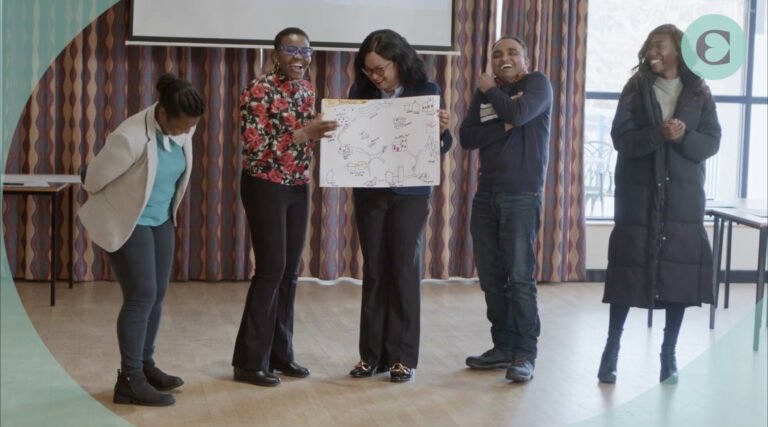
In The Flawless Consulting Fieldbook and Companion, Peter Block includes a typically challenging essay (Chapter 37) on the topic of evaluation. I can’t find a copy online, but I urge you to read it if you can. There’s so much in it.
The central idea that has always stayed with me is this:
“The way we evaluate what we do can either enforce passivity or push people into a more accountable position.”
One way in which we’ve applied this insight in our workshops at Enact can be found in the question we ask upfront in pretty much all of our sessions. Using our electronic polling system, we invite delegates to answer:
“How do you feel about attending this workshop today?”
Respondents pick from a scale of five answers, starting with ‘Enthusiastic and really looking forward to taking part’, with a mid-point of ‘Unsure and waiting to see what it’s all about’, and ending up with ‘Not at all interested and would rather be somewhere else.’
In Your Face
I’ll be honest, this question isn’t anywhere near as ‘in your face’ challenging as some of the questions Block would have us address upfront with workshop participants. Nevertheless, it works in exactly the way he suggests.
By asking it early on, we avoid the trap that most evaluation falls into; we don’t wait until it’s all over and it’s too late to learn something important. But much more important than this, we avoid reinforcing the belief implied in nearly all evaluation, as Block puts it, ‘that cause is at the front of the room and effect is in the audience.’
Results
When we reveal the results to our opening question, we reveal the room to everyone in it. And we gently start to move people into a more accountable position; one that acknowledges that ultimate success that day relies on them taking part.
If sufficient numbers of people are up for it and looking forward to taking part, that says something to everybody else. Social pressures come into play, as the minority who are disinterested and wanting away, and it is always a minority, get to see that not everybody feels like they do. Nobody is saying they shouldn’t feel that way, and we explore as far as possible what’s going on for them, but it’s clear that other people want to get something from this time, and they need to process that and respond accordingly. And when people are in a cautious ‘waiting to see’ place, we can explore that too, offer reassurances if necessary (and, hey, nobody said learning and development wasn’t going to feel a little uncomfortable) and move past it together as best we can. Most of all though, we’ve made the point, early on, that this is about participation. It’s not about us doing and them being done to.
We may use drama-based techniques, but we’re not simply looking for an audience. As the song has it, ‘here we are now, entertain us’ just isn’t going to work. Success is about showing up and taking part.
This post was written by David Allen, one of our Associates at Enact Solutions. He works with us in a range of areas and has designed and delivered workshops on employee engagement, high performing teams, and change management.



